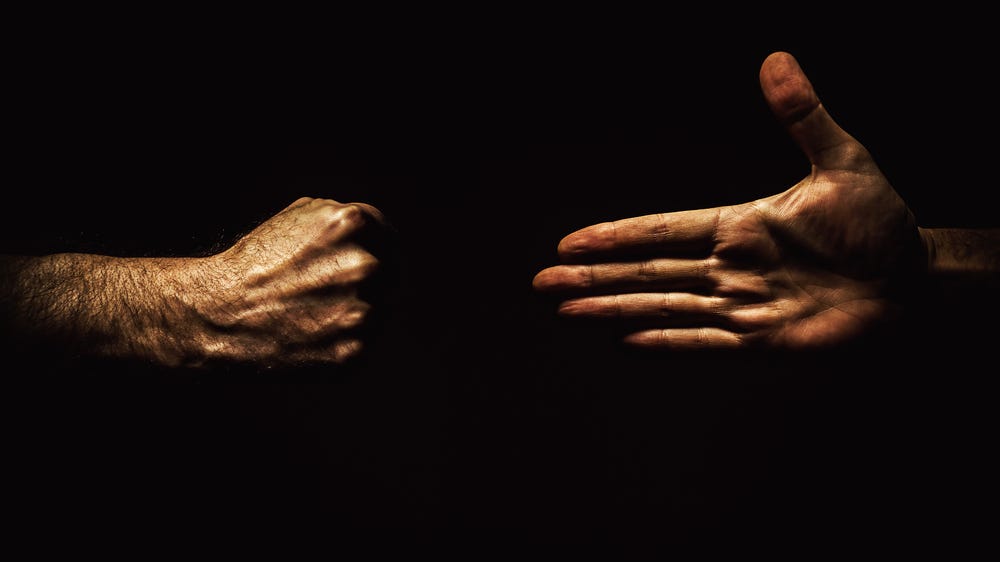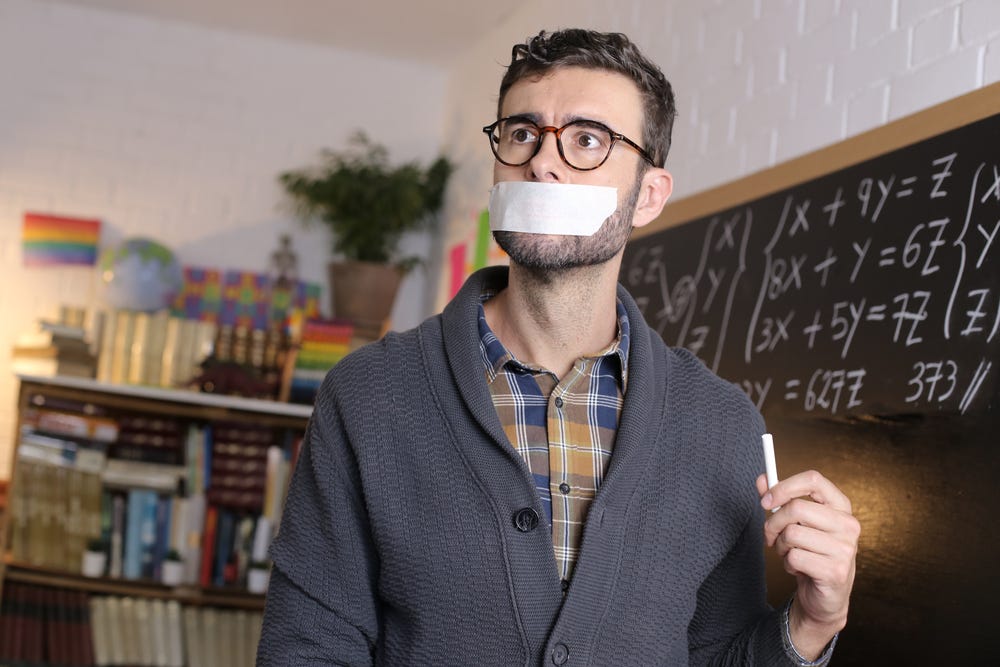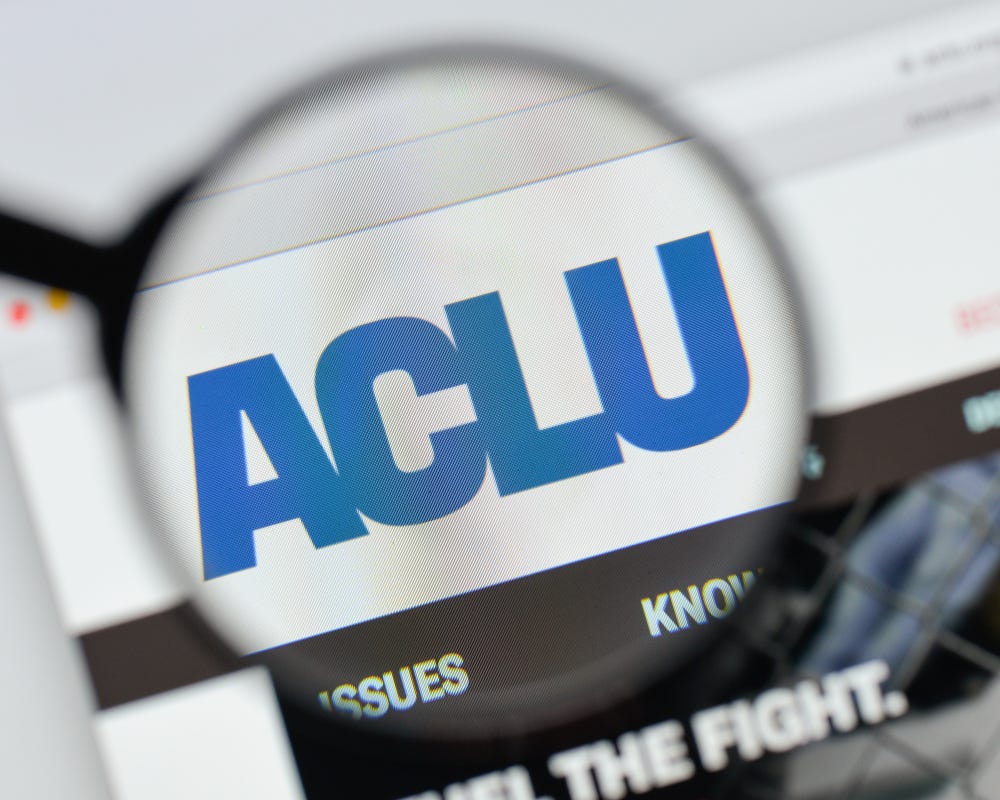E-Pluribus | November 29, 2021
Can common cause with an enemy be justified, does cancel culture really threaten academic freedom, and the ACLU meltdown revisited.
A round up of the latest and best writing and musings on the rise of illiberalism in the public discourse:
Robert Tracinski: The Enemy of My Enemy
The assault on classical liberalism is coming from both the left and right. In an essay for Quillette, Robert Tracinski explores the quandary faced by those fighting illiberalism when, at times, loose alliances with certain illiberal individuals or groups may result in some progress against more severe threats.
There is a basic rift on the “anti-woke” Right that is increasingly coming out into the open. Some of us oppose the censorious conformism of the social-justice Left because we are classical liberals who believe that freedom of speech and inquiry are critical to the functioning of a free society. Then there are those whose opposition rests on the belief that they should be the ones imposing limits on free inquiry in the name of traditional values. They don't want a free society, they want a virtuous society, in which their idea of virtue is promoted by government.
The nationalist conservatives are in the second camp. During his speech at the recent conference, for example, journalist Josh Hammer denounced the classical liberal wing of the Right as “effete, limp, and unmasculine, because it removes from the political arena, and consigns to the ‘private’ sphere, the very value judgments and critical questions that most affect our humanity and our civilization.”
Read the whole thing.
Yangyang Cheng: Cancel Culture Isn’t the Real Threat to Academic Freedom
Conservatives have long complained about the obstacles they face at many institutions of higher learning because of their political, cultural and social positions, and cancel culture is just the latest weapon employed against them. At The Atlantic, Yangyang Cheng argues that the reactions of some actually reflect an authoritarian streak and a threat to academic freedom that Cheng says are reminiscent of Beijing’s own tactics.
A university is not a public square. Miss the institutional context, and the understanding of academic freedom is flattened to an individual's right to free expression. Buried in the latest controversy over a disinvited speaker or a poorly worded email, the Board of Regents of the University System of Georgia has voted to effectively end tenure in the state’s public-university system. Donors have swayed hiring decisions at the University of North Carolina and tried to shape the curriculum at Yale. To the drumbeat of strategic rivalry, the State Department has placed various restrictions on Chinese students and researchers, the Justice Department is carrying out a “China Initiative” to combat economic espionage with a focus on academia, and funding for science, according to bills in Congress, is aimed at winning the competition against China. As a backlash to last year’s protests for racial justice and as a prelude to the next election cycle, more than two dozen states have introduced bills or passed laws that ban critical race theory at schools and limit teaching on racism and gender discrimination.
I do not know whether proponents of these bans realize how much their position resembles that of Beijing and its followers, the red menace they rail against. An honest history lesson would reveal systemic oppression and implicate the powerful. The language of unity and national pride is weaponized to absolve the authorities and conceal the truth.
An ivory tower above and beyond the messy planes of politics is an illusion. The academy is not an abstraction. It has a history and depends on a set of material conditions to function. It’s not merely a meeting of minds but also a congregation of bodies, in a world where some bodies are valued more than others. Like any other institution, the academy is embedded in the power relations of a society, and relations of power, if not actively contested, are always reproduced. Regarding racist speech and critiques of racist speech as equal in a “marketplace of ideas” is not being neutral; it is perpetuating racism. Too often, discussions on “campus free speech” are distracted by superficial optics and overlook the underlying power dynamic. The privileged cry victim when their privilege is being challenged. The disenfranchised resort to aggressive tactics in a desperate attempt to be heard and are cast as the bully.
Read it all.
Jesse Singal: I Don’t Like Watching The Institutions I Respect Melt Down Into A Single Congealed Unprincipled Gloop
Pluribus recently explored the decline in the commitment of the ACLU and other civil liberties groups to free speech and civil rights depending on whose rights were at stake. Jesse Singal says the ACLU and its ilk are shooting themselves in the foot with their partiality since conservatives share some of the same concerns regarding criminal justice reform, but are turned off by the anti-conservative bias such groups tend to exhibit.
If you know anything about the ACLU’s history or reasons for existing, these are very strange — disturbing, I’d argue — statements. The ACLU of Wisconsin seems to be saying Kyle Rittenhouse should have been convicted. What else could a statement noting that he “was not held responsible for his actions,” issued the day of his full acquittal, possibly mean? If you don’t think he was guilty of the crimes he was accused of, there’s nothing for him to have been “held responsible” for. The ACLU is supposed to stand on the side of vulnerable people facing a justice system that has a chronic tendency to overcharge and to withhold from suspects and defendants their full constitutional rights. Why is the ACLU of Wisconsin siding with that system — especially without any further explanation as to why this was an unjust ruling?
[…]
But most important is the same point I just made about the ACLU: This really violates The Sentencing Project’s principles. Yes, it is against unfair disparities in the criminal justice system. But you reduce unfair disparities by making the system fairer for black or poor people, not less fair for white or rich people. Clearly, Fettig is arguing that there is something unjust about this ruling, but she doesn’t say what. In a slightly different universe, this is exactly the sort of case where The Sentencing Project would come out in support of the defendant. They have a whole report titled “The Next Step: Ending Excessive Punishment For Violent Crimes.” It’s sort of apples-to-oranges because a court of law has now confirmed that Rittenhouse didn’t actually commit a crime, but this is not an organization that normally acts in this manner. (Rittenhouse is an unusual case because he has almost every characteristic that usually allows the justice system to treat you like a punching bag — he’s young, uneducated, lacked any resources to speak of, and faced serious and politically freighted charges — but, thanks to the fact that he became a right-wing celebrity, he was able to raise the funds you need in America to guarantee access to competent counsel.)
[…]
This does a lot of damage in the long run, because it broadcasts that none of these groups actually cares about anything but being seen as being on the right team at every moment. A principled organization should piss off different tribes at different points — that’s an inevitable result of having stable principles. A lot of conservatives are sympathetic to the goals of the ACLU and The Sentencing Project — criminal-justice-reform has been one of those few areas of some fruitful bipartisan agreement and action in recent years — but they won’t be for long if stuff like this continues.
Read it all here.
Around Twitter
Ayaan Hirsi Ali on the latest groups seeking protection and acceptance under the banner of progressivism:
Via Wesley Yang, Glenn Greenwald continues to beat the drum over the propagandic use of “white supremacy” by pundits, politicians and the media:
Some kind words from Batya Ungar-Sargon and Thomas Chatterton Williams for Briahna Joy Gray and her willingness to engage ideas contrary to her own:
Finally, more “woke” language translation via Peter Boghossian:










